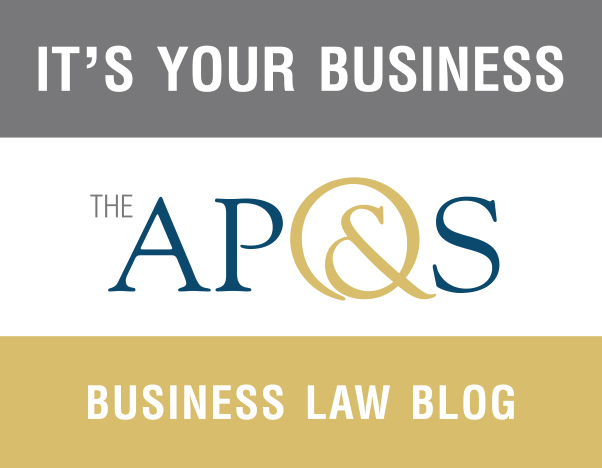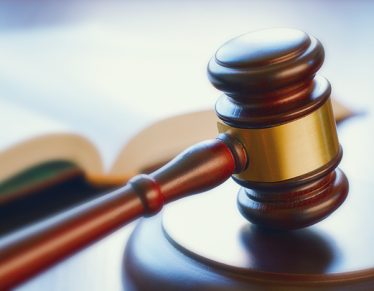Since its enactment as the basic federal law on trademarks in 1946, the Lanham Act has prohibited the registration of “derogatory” trademarks with the United States Patent and Trademark Office (USPTO). On June 19, 2017, the United States Supreme Court found that restriction to be an unconstitutional violation of the First Amendment. The decision, Matal v. Tam, No. 15-1293, 582 U.S. ___, 2017 WL 2621315 (2017), unanimously held that the government violated the First Amendment when it discriminated among trademark applications based on the content of the trademarks. Although not explicitly examined by the Supreme Court, it seems likely that another, similar Lanham Act provision prohibiting the registration of marks that contain “immoral [or] scandalous matter” also would be deemed unconstitutional under the First Amendment.
This case arose out of Simon Tam’s application to register the trademark THE SLANTS. Mr. Tam was the lead singer of a rock band by the same name, composed of Asian-American members. The USPTO had concluded, and the Supreme Court accepted, that “slants” is considered a derogatory term for people of Asian descent. The band opted to call themselves “The Slants” in order to “‘reclaim’ the term and drain its denigrating force.” Id. at *5. The USPTO denied the application based on the disparagement clause of the Lanham Act, which prohibits the registration of marks that “may disparage…or bring…into contemp[t] or disrepute” any “persons, living or dead.” 15 U.S.C. § 1052(a).
The Supreme Court’s unanimous conclusion that the disparagement provision was unconstitutional is particularly notable in light of the numerous judges and other authorities who had upheld the provision and rejected Mr. Tam’s application. Mr. Tam appealed the denial of registration to the Trademark Trial and Appeal Board, a component of the USPTO, which affirmed the decision refusing registration. Mr. Tam appealed again, to the United States Court of Appeals for the Federal Circuit, which initially ruled against him in a 3-0 decision, although one of the judges issued a concurring opinion in which he called for a reexamination of the constitutionality of the disparagement provision of the Lanham Act. In re Tam, 785 F.3d 567 (Fed. Cir. 2015). The Federal Circuit subsequently reviewed Mr. Tam’s case en banc and reversed on the grounds that the disparagement clause violates the First Amendment. In re Tam, 808 F.3d 1321 (Fed. Cir. 2015). Even then, two of the judges on the Federal Circuit disagreed outright, arguing that the provision was constitutional, and another opined that the provision was unconstitutional as applied to Mr. Tam, but not in all cases. The Supreme Court was not so divided, affirming the judgment of the Federal Circuit unanimously and declaring the provision to be unconstitutional on its face.
In its ruling, the Supreme Court explicitly rejected numerous arguments that had been advanced and previously accepted, at least by the USPTO and lower courts, as justifying the ban on registration of derogatory marks:
- The primary argument in favor of the government’s right to discriminate among different trademarks was that the registration of trademarks, as a governmental function, renders the marks “government speech,” which is not subject to First Amendment restrictions. The government advanced this argument, relying on the 2015 case of Walker v. Texas Div., Sons of Confederate Veterans, Inc., 135 S.Ct. 2239 (2015), which had affirmed the right of the state of Texas to issue specialty license plates containing a variation of the Confederate flag on the ground that the license plates constitute “government speech.” The Court rejected this argument, observing that if the Government is expressing itself through the trademarks it registers, then the Government is “babbling prodigiously and incoherently,” “expressing contradictory views” and “endorsing a vast array of commercial products and services.” Tam, 2017 WL 2621315, at *12.
- The Court also rejected the argument that the allowance of trademark registrations constitutes a subsidy to trademark owners because it is the owners, in fact, who pay the USPTO for the service of registration of the marks. Id. at *17-18.
- Finally, the Court dismissed a separate argument that the disparagement clause should be upheld under a new doctrine for “government-program” cases, reasoning that those cases “occupy a special area of First Amendment case law, […] far removed from the registration of trademarks.” Id.
The disparagement provision gained notoriety in recent years when a panel of the federal Trademark Trial and Appeal Board declared the Washington Redskins team name to be offensive to Native Americans, a decision that led to a federal district court agreeing and canceling trademarks using the Redskins name. In light of the Tam decision, the Washington Redskins dispute most likely will be resolved in favor of the registration of “Redskins” trademarks.
This decision is one of several strong First Amendment decisions from the current Supreme Court. The case is clearly a victory for Mr. Tam and, most probably, the owners of the Washington Redskins. But in extending federal trademark registration to marks that would previously have been denied registration because of their proclivity to offend people or groups, the Supreme Court has opened the gates for innumerable “derogatory marks,” whether those involve derogatory names for racial or ethnic groups, scandalous or immoral activity, or simply offensive wording. The world of trademarks is about to become significantly more colorful.







